#lady chatterley's lover 1981
Photo
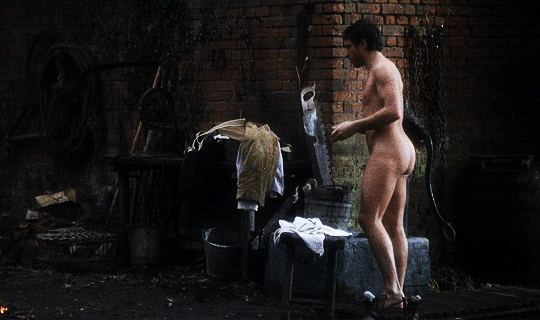
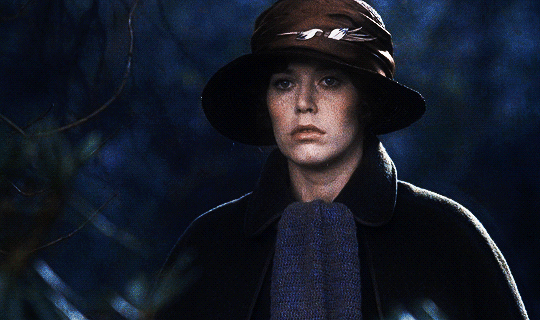

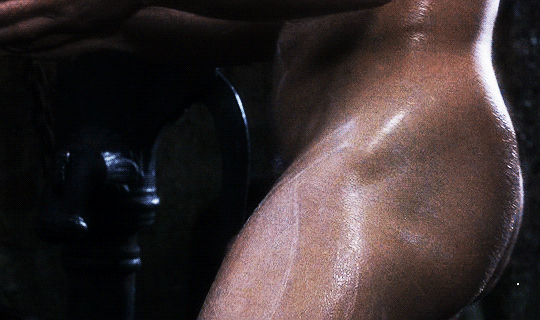
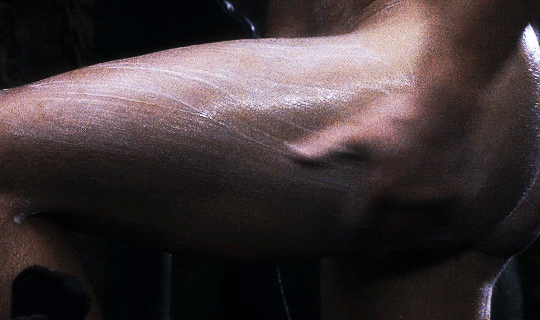
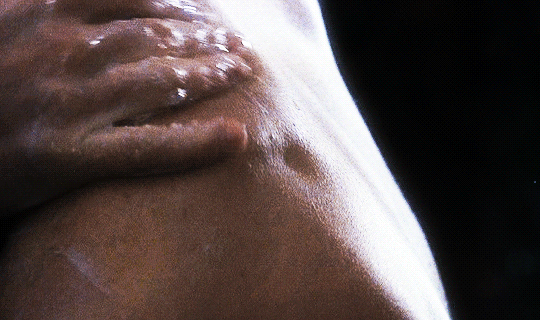
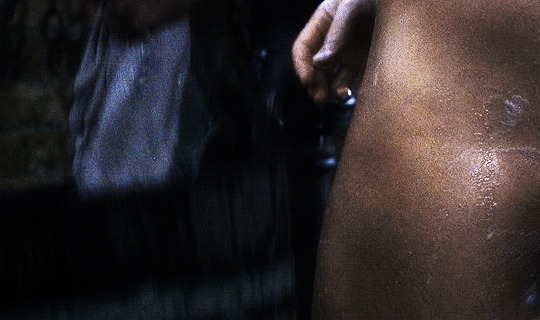
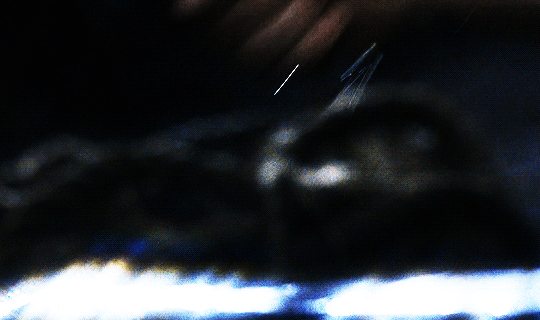
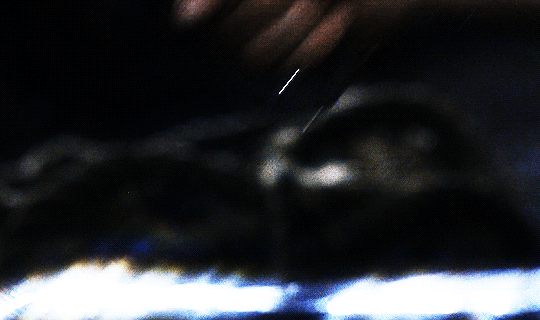
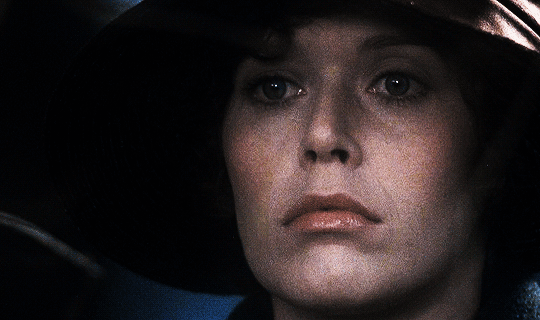
Sylvia Kristel as Constance Chatterley & Nicholas Clay as Oliver Mellors in Lady Chatterley's Lover (1981) dir. Just Jaeckin
#filmedit#perioddramaedit#romanceedit#80sedit#usermichi#userrobin#chewieblog#lady chatterley's lover#lady chatterley's lover 1981#1980s#20th century#gifs#ours#ours:gifs#*#gina
1K notes
·
View notes
Text
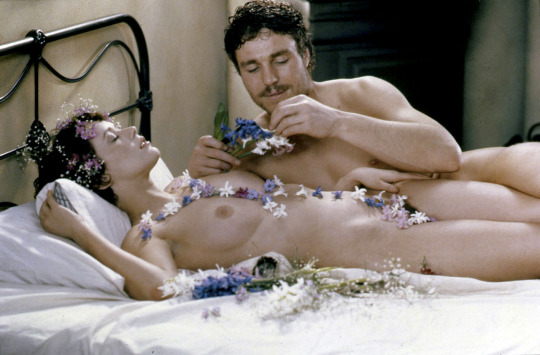
Sylvia Kristel in 'Lady Chatterley's Lover' (1981)
134 notes
·
View notes
Photo
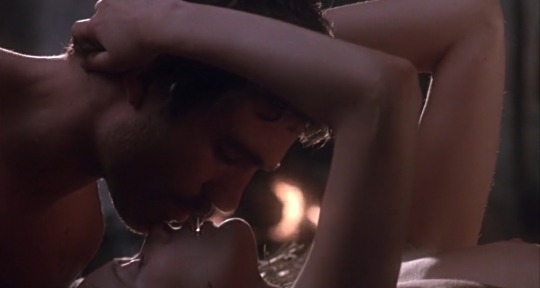





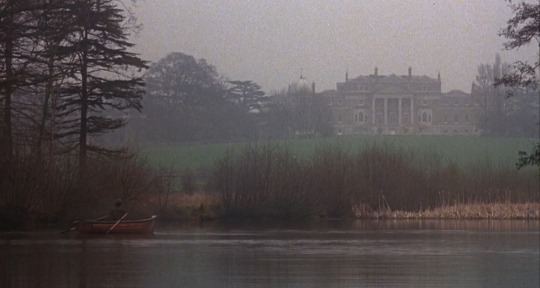
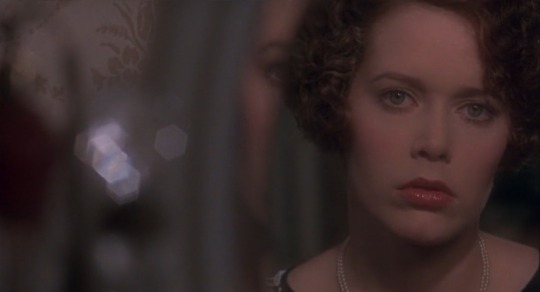
Lady Chatterley’s Lover (1981). dir. Just Jaeckin
#lady chatterley’s lover#just jaeckin#film#sylvia kristel#nicholas clay#shane briant#period drama#period film#d. h. lawrence
119 notes
·
View notes
Text
Lady Cassidy's Lover
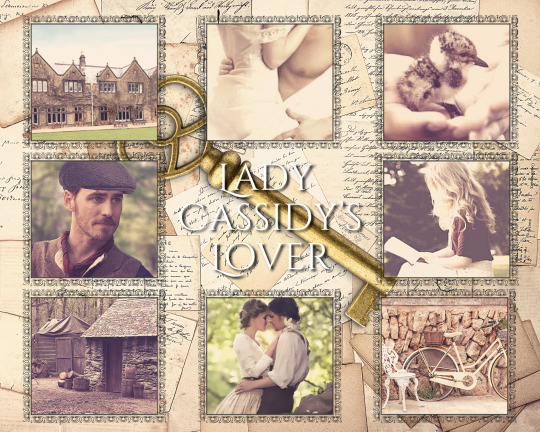
Summary: 1919 England, Emma Cassidy, wife of a baronet, finds herself trapped in a loveless marriage after the war leaves her husband, Neal, paralyzed from the waist down and unable to produce an heir.
Despite the obstacles, she sticks by her husband's side at Goldby Hall, his family's estate, but when she meets former army lieutenant and Neal's aloof gamekeeper, Killian Jones, she feels curiously drawn to his distant blue eyes and quiet demeanor.
At first, she seeks him out for reprieve from her soulless, mundane existence at Goldby Hall, but what starts out as purely physical quickly turns into more than either of them expects.
But Emma is a baronetess, wife of an aristocrat and Killian is a working class servant. Their love affair is frowned upon, and she risks losing her title, her wealth and her position in the world by being with him. But she is determined to get her happy ending with the man she loves. Even if it means losing everything else in the process.
A/N: Despite Emma's last name and marriage to Neal, this NOT a swanfire fic! This definitely ends with Captain Swan so if you're expecting swanfire, this is not for you.
This is the Lady Chatterley's Lover au no one asked for. I had never read the novel but when I watched the newest movie adaptation (there are 4 that I know of), I simply had to write this for CS even though I already have a mountain of wips in my doc. This fic will mostly be following the 1981 and 2022 versions. If you haven't watched the 2022 version, I highly recommend it, if no other reason than to watch Jack O'Connell.
This fic deals with mature themes (some of which the book was banned for back when it was written), adultery, postwar, language, smut.
Hope you enjoy!
Catch up: Ch 1 I Ch 2 I Ch 3 I Ch 4 I Ch 5 I Ch 6 I Ch 7 I Ch 8 I Ch 9 I Ch 10 I Ch 11 I Ch 12 I Epilogue
We've got to live, no matter how many skies have fallen—D. H. Lawrence, Lady Chatterley's Lover
Chapter One
Emma releases a heavy sigh as she slumps down onto the sofa, relieved the ceremony is over with. If only the day were done too, so she wouldn't have to be subjected to dancing and all the other useless traditions of a wedding reception. Now she has to listen to dreadful toasts and her and Neal's family drone on about how perfect she and her new doting husband are together.
"So, how does it feel?" One by one, her sister, Mary Margaret unbuckles Emma's shoes and pulls them off her tired feet.
Emma shakes her head. "I don't know. Ask me tomorrow." Perhaps then she'll feel differently about exchanging vows with a man she barely knows.
She and Neal had met and courted shortly before he was shipped off to war, and during his leave, he had confessed he'd hated being without her and asked her to marry him. She had said yes and they were quick to get married before he returns to the front. Their fathers may have had a hand in rushing things along as well. Britain declared war with Germany three years ago, heightening Sir Rumpelstiltskin's long-held desire to see his only son marry and produce heirs to their fortune.
Emma's father, Sir Leopold, wants her to have a stable husband, and who better than a man with a hereditary rank and title? She and Mary Margaret were raised in Kensington by Sir Leopold, a royal academician and their mother, Eva, a well-educated socialist, and had what one might call an aesthetically unorthodox childhood. They had been taken to Paris, Florence and Rome to breathe in art, and to the Hague and Berlin for socialist conventions where the speakers spoke in every civilized tongue.
Emma comes from wealth and Neal from aristocracy, so some could say it's the perfect match, except for the fact she has not known him long enough to truly love him. But from her perspective, this marriage is the perfect arrangement. The perfect way to get her father off her back about finding a suitable husband like her sister's. Furthermore, she does not have to worry about getting hurt by someone she does not love. She has experienced what it's like to lose someone she loves. She lost her mother ten years ago to illness and had to witness her father almost become a shell of a man without her. Emma made up her mind long ago she would never give her heart to a man. She would never submit to him emotionally.
She has been with men before, of course, but none she had loved.
A man is like a child, and if he doesn't get what he wants, he whines and fusses, exposing an unpleasant side of himself. But a woman can yield to a man without yielding her inner, free self. A woman can take a man without truly giving herself away. Certainly, she can take him without giving herself into his power. Rather, she can wield the power over him.
"You need to eat something."
"I need to get out of this dress first." She doesn't quite care for the high-waisted empire line, the tiered skirt made of dreadful lace or the sleeves that fall to her elbows. It reminds her of a tablecloth rather than a dress. Don't get her started on the extravagantly large bouquet of flowers that nearly touched the ground when she held it. And she'd tossed away the Juliet veil as soon as she had returned to the bridal suite.
Mary Margaret agrees as she takes her hand and pulls her up, helping Emma out of her wedding gown and into a simpler dress for the reception.
"How do I look?" Emma asks once she's in it, twirling around in the green dress to give her sister the full effect.
Mary Margaret smirks. "Well, I doubt Neal will want to stay long at the reception."
Emma's cheeks warm as she stands in front of the mirror and removes her earrings, replacing them with emerald ones that will match her dress. She and Neal have not even had sex yet, so tonight will be their first time. "You don't think his mother would've approved?" Neal's mother was the daughter of a viscount before she died.
"Well, I'm not entirely sure I do."
Emma rolls her eyes at her sister as she recoats her lips in red lipstick. "Are we talking about the dress...or the wedding?" Not everyone can find their prince charming as she did. Mary Margaret's marriage to David was definitely not forced or rushed. They are true love, as she always likes to boast. "We had to marry quickly before he returns to the front in the morning."
"Yes, but couldn't you have just had sex with him instead of marrying him?"
Emma laughs. "Mary Margaret! Be serious." She studies herself in the mirror, turning and running her hand over her dress, deciding to leave her blonde hair braided into a crown atop her head. She looks like herself, but somehow different now that she's married. She had honestly never thought this day would come.
"I am. It's much less commitment, and it's all Neal will want anyway."
"Neal's not like that. He's kind and thoughtful. He makes me feel safe."
"You mean safe from getting hurt?"
Emma looks up to see Mary Margaret's reflection in the mirror as the brunette narrows her eyes. But Emma knows she can't lie to her sister. Mary Margaret would see right through her. Emma stands and turns around to face her. "Precisely."
Mary Margaret places her hands on Emma's shoulders. "See, that's just it. If you never open that heart of yours up to anyone, you'll grow old and gray without ever experiencing the wonderful things life has to offer."
"I do experience the wonderful things life has to offer." Not that sex is really that wonderful. It has always been merely a way to let off some steam.
Mary Margaret tilts her head. "I'm not talking about sex. I'm talking about love."
The clearing of a throat interrupts their conversation when Neal steps into the room with a tray of three wine glasses. "I brought reinforcements."
The two women blush when they realize he must have heard the tail end of their conversation.
Mary Margaret goes over to Neal and grabs one of the glasses, taking a sip. "You read my mind."
"I nearly drank yours on the way up," he tells her, chuckling as he hands one to Emma and takes the other one for himself. Setting down the tray, he clinks his and Emma's glasses together. "Cheers."
"Cheers." Emma smiles at her new husband and takes a sip.
"Our fathers are preparing their toasts."
Emma groans, not looking forward to going downstairs. "Can we face them together?"
"Of course." He smiles at her, and she has to admit, Neal is not the worst man she could've chosen for a husband. He's handsome and charming, his eyes crinkling at the corners when he smiles. She can tell he cares for her. "You look beautiful, Ems."
She offers a smile in return. "Thanks."
After they finish their wine, she takes his offered hand, allowing him to lead her downstairs, where their fathers give speeches and announce their hope for a new heir to Goldby.
~*~
Two years later
Dearest Mary Margaret,
I knew the war would change us all, I just didn't know how much. It feels as though it ended half a lifetime ago, not half a year. Neal and I have already moved away from London, and we've just arrived at Goldby, his family estate. Once we get settled in, I expect to write to you often.
Your loving sister,
Emma
Lady Cassidy gazes vacantly through the window as the motor-car winds through the park of oak trees. The sky is about as gray and murky as the future, for who knows what tragedies it may hold. Clouds of smoke rise from the chimney of the pit in the distance where Misthaven village struggles to stay afloat beyond the park gates.
The car pulls up in front of the eighteenth century home made of brown stone that sits on the top of a knoll, overlooking the park. This is her new home in the smoky Midlands where she and Neal will finally begin their married life at Goldby Hall, the family seat. His father had died of heart failure, and Neal is now baronet. But he claims his father died of chagrin since he and Emma are without a child. And they most likely will be childless forever. Not only did they never get the chance to consummate their marriage the night of their honeymoon since she had been too exhausted and he had been too anxious about returning to war, they never will.
The chauffeur opens Emma's car door and grabs her luggage.
"Thank you." She steps out, taking in her new home. This place is nothing like her childhood house in London. Goldby certainly needs a lot of work.
The housekeeper, Mrs. Potts, who worked for Rumpelstiltskin, approaches with her husband to greet them. "Welcome, Sir Neal. We've been praying for you."
Mr. Potts helps him out of the car, picking him up and placing him into his wheelchair. An explosion during the war left Neal paralyzed from the waist down, and the doctor said he may never be able to walk again.
Emma tries not to think about that, however. She tries not to think about how she may never get pregnant or be able to give birth to a child as long as she's with Neal. She will never get to raise children or watch them grow up and run around the park at Goldby. She can't think of herself anymore though. She is married to a baronet, whom she vowed to have and to hold, for better and for worse, for richer and for poorer, in sickness and in health until they are parted by death. After he returned from war, he told her he could never lose her, and she promised he never would.
She will spend the rest of her life keeping that promise.
"Mr. and Mrs. Potts, this is my wife, the new Lady Cassidy."
Mrs. Potts turns around to greet her with a curtsy. "It's so nice to meet you, milady."
Emma smiles, bows her head and steps toward her. "Nice to meet you."
Neal wheels himself over to his wife, and the four of them avert their attention to the worn-looking house towering over them. "There's plenty of work to be done," Neal comments. "Hire back all the workers we can, Mrs. Potts. Old girl's seen better days."
Emma places a hand on the back of his chair and tries to be optimistic. "We'll bring her back to life."
~*~
"Killian Jones." Sir Neal looks up from the application in his hand from where he sits at the other side of the desk. "You, uh, worked for my father before the war?"
"Aye, sir. For two years." When he returned, he heard Rumpelstiltskin had passed and that Neal would be taking over and hiring new staff.
"And you were an army lieutenant?"
Killian nods. "I was very sorry to hear about your father. My condolences, sir." He wishes he could say Sir Rumpelstiltskin was a good man, but that would be a lie. He was ridiculous, chopping down trees in the forest and weeding men out of his colliery to shove them into the war while he, himself, was a coward who stayed safe at home and buried his country in heaps of debt while claiming to be patriotic.
"Thank you." Neal looks at him skeptically. "Do you honestly believe returning to gamekeeping will be satisfying after your time as an officer?"
Killian shrugs, his fingers drumming along his wool cap. If he could, he would leave. Every night, he dreams of escaping to a new place where a new voice says his name with warmth, where eyes filled with love look at him instead of ones filled with hatred and betrayal, where he is not dismissed. There is no freedom here, there never will be. Milah doesn't love him, but nevertheless she holds him close. One more possession.
"Bit of quiet would do me good. I've seen enough of what war does to men." Not only had he seen men brutally die in battle, but his brother had been one of them. Every day, he tries to push away the horrific images that have plagued him since the war. Every day he tries to forget. About the war, about her. Being a gamekeeper, tending to the animals, breeding them, enjoying the quiet of the forest while protecting it will be therapeutic for him.
"Hmm. As have I." Sir Neal has learned firsthand what war can do to men. He himself was paralyzed from the waist down.
Rumors about his injury had spread before Neal came to Goldby.
Neal sets the application down and joins his hands on the desk. "Very well then. Welcome back, Mr. Jones."
"Thank you, Sir." Killian turns around and heads out of Neal's study, moving past the long line of men seeking employment. He was lucky the baronet had hired him so quickly, and he is grateful. Killian receives a monthly war pension, but since he and Milah are still legally married, she's entitled to half of it. So now he is stuck in Misthaven, barely skimming by to make ends meet while Milah prances around with various menfolk of the village, spending the money he had earned by going to battle and risking his life.
Now he spends restless, lonely nights in his cottage, thinking about his brother and the war and everyone else he has lost.
But at least he has Jolly to keep him company.
He returns home to his cottage, where she's waiting for him at the door. His lips crack into a big smile when he sees her. "There's my good lass." He kneels down to ruffle a hand through her fur as she yaps, wagging her tail excitedly.
She truly is a good dog and the best companion he could hope for. She's loyal and trustworthy and always appreciates his affections, unlike his wife who betrayed him to be with other men.
After everything that's happened, Jolly is the one good thing in his life.
All he has left.
33 notes
·
View notes
Text
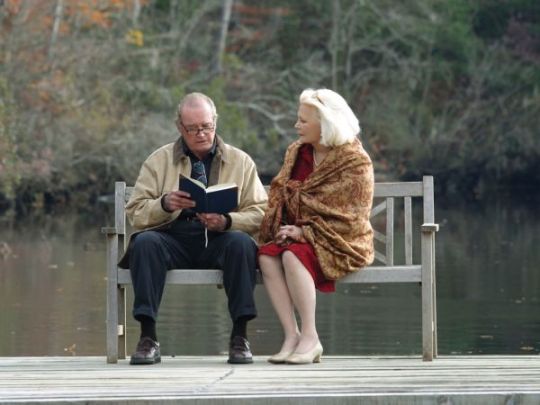
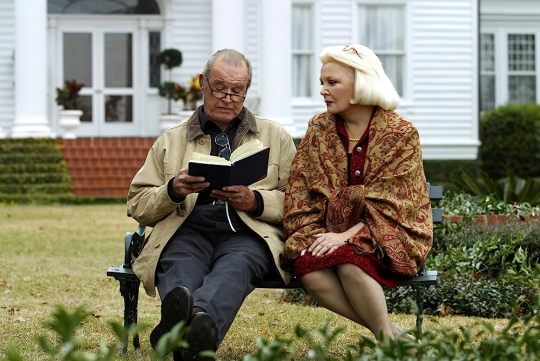
James Garner and Gena Rowlands in The Notebook (2005), photographed by Robert Fraisse. Bob was born in Paris and has 49 cinematography credits from 1973 to a 2016 short.
His other notable credits include The Story of O, Emmanuelle 2, Lady Chatterley's Lover (1981), Seven Years in Tibet, Ronin, and Hotel Rwanda.
1 note
·
View note
Text
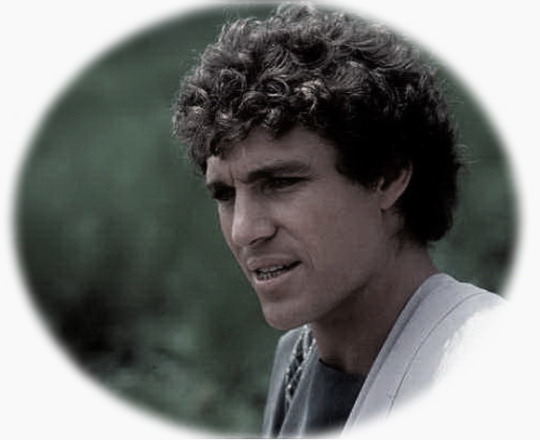
A Beautiful Man
I close my eyes and remember
The beauty of your Adonis-like features,
The astonishing symmetry of your face,
The sensuous smoothness of your skin...
I paint in my imagination
Those deep, all-consuming eyes,
Hair like the blackest night
And, mouth created for dark passion.
Then, I look at you and rediscover
The sweet hesitation in your smile,
That tender yearning in your gaze,
The reason you're a god amongst men...

Nicholas Clay, who has died of cancer aged 53, was a superb Lancelot in John Boorman’s film Excalibur (1981), a prominent player during Sir Laurence Olivier’s golden Old Vic period in the 1970s, a television star, and an actor who loved teaching - and was good at it.
“He was quite the most beautiful man I had ever seen, gallingly handsome and awesomely athletic”. (author of the guardian, 2000)
Video Terry Jacks "If you go away"
Lady Chatterley's Lover
1 note
·
View note
Photo
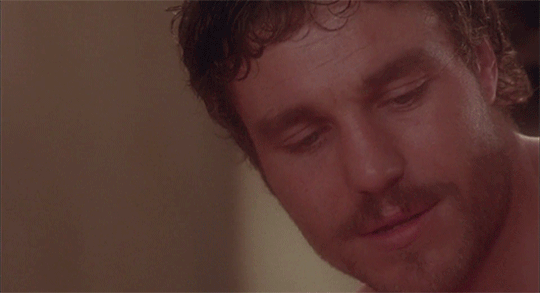

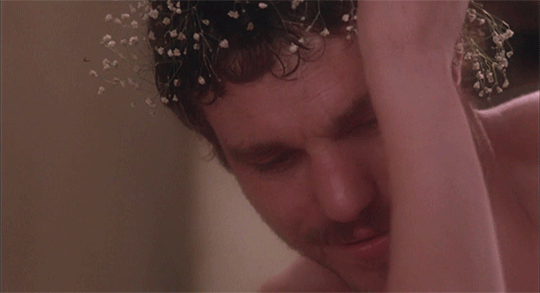
Lady Chatterley’s Lover (1981)
#lady chatterley's lover#lady chatterley's lover 1981#just jaeckin#d. h. lawrence#d h lawrence#sylvia kristel#nicholas clay#flowers#love#couple#romance#n*sfw#my gifs#lady chatterley
893 notes
·
View notes
Text
Lady Chatterley's Lover (1981)
Lady Chatterley’s Lover (1981)
After a crippling injury leaves her husband Sir Clifford (Shane Bryant) impotent, Lady Chatterly (Sylvia Kristel) is torn between her love for her husband and her physical desires. With her husband’s consent, she seeks out other means of fulfilling her needs aided by the gardener, Mellors (Nicholas Clay).
Continue reading

View On WordPress
9 notes
·
View notes
Photo
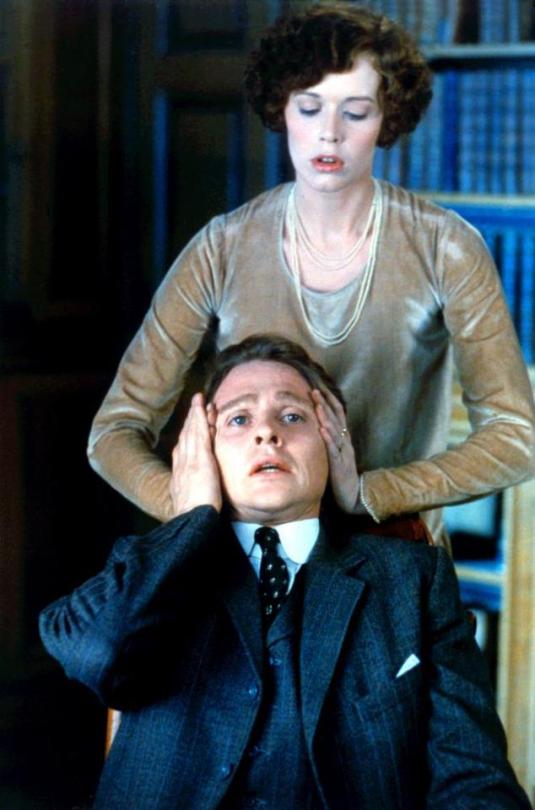
Sylvia Kristel and Shane Briant in Lady Chatterley's Lover (Dir. Just Jaeckin, 1981).
Source
27 notes
·
View notes
Note
what are your favorite movies 🖤🖤
malá morská víla (1976), la reine margot (1994), marie antoinette (2006), legend (1985), sucker punch (2011), peau d'âne (1970), la belle et la bête (1946), queen of the damned (2002), valerie a týden divů (1970), kvitebjørn kong valemon (1991), rusalochka (1976), mr. peabody and the mermaid (1948), titanic (1997), the witches of eastwick (1987), lady chatterley's lover (1981), madame bovary (1991), jeanne d'arc (1999), the fifth element (1997), orlando (1992), the ghost and mrs. muir (1947), la belle et la bête (2014), bram stoker's dracula (1992), étoile (1989), the handmaiden (2016), howl's moving castle (2004), la religieuse (1966), the company of wolves (1984), romeo + juliet (1996), lotr trilogy (2001-03)
98 notes
·
View notes
Photo
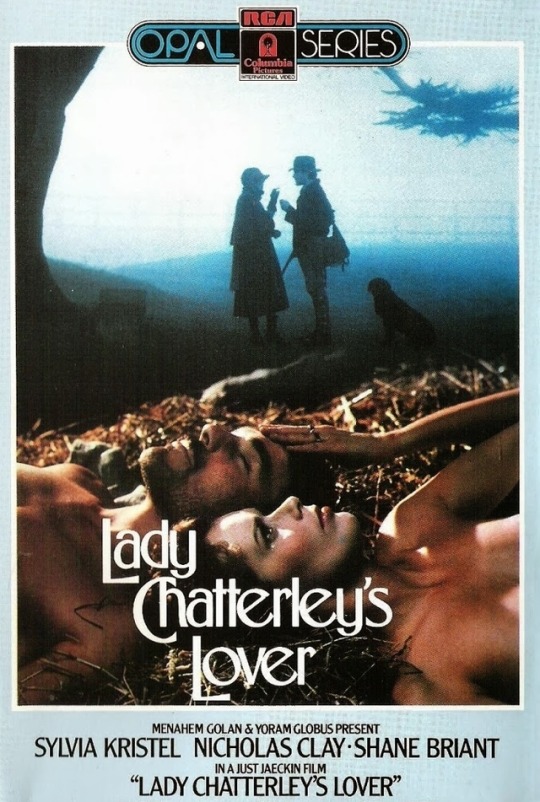
Lady Chatterley's Lover (1981)
147 notes
·
View notes
Text
I dl’d the 1981 Lady Chatterley’s Lover cause I thought I could maybe use some footage for a Phillip/Eloise gifset and I’ve never seen that version before and I did not expect it to be Like That lmao
But that scene where she’s lying naked in bed and he’s covering her with flowers? That is Phillip/Eloise and I want it.
13 notes
·
View notes
Text
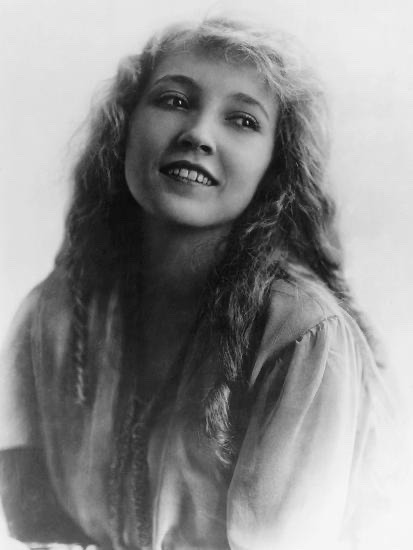
Bessie Love (born Juanita Horton; September 10, 1898 – April 26, 1986) was an American-British actress who achieved prominence playing innocent, young girls and wholesome leading ladies in silent and early sound films. Her acting career spanned eight decades—from silent film to sound film, including theatre, radio, and television—and her performance in The Broadway Melody (1929) earned her a nomination for the Academy Award for Best Actress.
Love was born Juanita Horton in Midland, Texas, to John Cross Horton and Emma Jane Horton ( Savage). Her father was a cowboy and bartender, while her mother worked in and managed restaurants. She attended school in Midland until she was in the eighth grade, when her family moved to Arizona, New Mexico, and then to California, where they settled in Hollywood. When in Hollywood, her father became a chiropractor, and her mother worked at the Jantzen's Knitwear and Bathing Suits factory.
In June 1915, while a student at Los Angeles High School, Horton went to the set of a film to meet with actor Tom Mix, who had recommended that she visit him if she wanted to "get into pictures". However, when Mix was unavailable, she was advised to meet with pioneering film director D. W. Griffith, who put her under personal contract. When it was decided that her given name was too long for theater marquees and too difficult to pronounce, Griffith's associate Frank Woods gave Horton the stage name Bessie Love: "Bessie, because any child can pronounce it. And Love, because we want everyone to love her!" Love dropped out of high school to pursue her film career, but she completed her diploma in 1919.
Griffith gave her a small role in his Intolerance (1916). Although Intolerance was her first performance to be filmed, it was her ninth film to be released. The first films Love made were with Griffith's Fine Arts company, yet Intolerance was the only film that he formally directed.
Her "first role of importance" —in the second of her films to be released—was in The Flying Torpedo (1916). She later appeared opposite William S. Hart in The Aryan and with Douglas Fairbanks in The Good Bad-Man, Reggie Mixes In, and The Mystery of the Leaping Fish (all 1916). This string of appearances and supporting roles led to her first starring role, in A Sister of Six (1916). In her early career, she was likened to Mary Pickford, and was called "Our Mary" by Griffith.
As her roles got larger, her popularity gradually grew. In early 1918, Love left Fine Arts for a better contract with Pathé.[ After the Pathé films were unsuccessful, she signed a nine-film contract with Vitagraph later that year, all of which were directed by David Smith. Her performances often received positive reviews, but her films often were shown at smaller movie theaters, which impacted the growth of her career.
Upon the completion of her Vitagraph contract, Love became a free agent. She took an active role in the management of her career, and was represented by Gerald C. Duffy, the former editor of Picture-Play Magazine.
Love sought roles that were different from the little girls she had portrayed earlier in her career when under contract to studios. She played Asian women in The Vermilion Pencil (1922) and The Purple Dawn (1923); a drug-addicted mother in Human Wreckage (1923); a woman accused of murder in The Woman on the Jury (1924); an underworld flapper in Those Who Dance (1924); and versions of her real-life self in Night Life in Hollywood (1922), Souls for Sale (1923), and Mary of the Movies (1923).
As a film star, she was expected to entertain studio executives at parties, so she learned to sing, dance, and play the ukulele. She gradually honed these skills and later performed them onscreen and on the stage. Because of her performance in The King on Main Street (1925), Love is credited with being the first person to dance the Charleston on film, popularizing it in the United States. Her technique was documented in instructional guides, including a series of photographs by Edward Steichen. She subsequently performed the dance the following year in The Song and Dance Man.
In 1925, she starred in The Lost World, a science fiction adventure based on the novel of the same name by Sir Arthur Conan Doyle. In 1927, she appeared in the successful Dress Parade, and was so impressed by her experiences on location that she wrote the unpublished novel Military Mary. A year later, she starred in The Matinee Idol, a romantic comedy directed by a young Frank Capra. Despite these successes, Love's career was on the decline. She lived frugally so that she could afford lessons in singing and dancing.
Love toured with a musical revue for sixteen weeks, which was so physically demanding that she broke a rib. The experience she gained on the vaudeville stage singing and dancing in three performances a day prepared her for the introduction of sound films. She appeared in the successful sound musical short film The Swell Head in early 1928, and was signed to MGM later that year.
In 1929, she appeared in her first feature-length sound film, the musical The Broadway Melody. Her performance earned her a nomination for the Academy Award for Best Actress, and the success of the film resulted in a five-year contract with MGM and an increase in her weekly salary from US$500 to $3,000 (equivalent to $45,000 in 2019)—$1,000 more than her male co-star Charles King.
She appeared in several other early musicals, including 1929's The Hollywood Revue of 1929 and 1930's Chasing Rainbows, Good News, and They Learned About Women. Her success in these musicals earned her the title "the screen's first musical comedy star."
However, the popularity of musical films waned, again putting her career in decline. Love is quoted as saying of her career: "I guess I'm through. They don't seem to want me any more." She shifted focus to her personal life, marrying in December 1929.
She semi-retired from films, and traveled with a musical revue that included clips from her films The Broadway Melody, The Hollywood Revue, and Chasing Rainbows. While on tour, she learned she was pregnant with her daughter, who was born in 1932. Love stopped her stage work to raise her daughter. In 1935, Love moved to England, briefly returning to the United States in 1936 to obtain a divorce.
During World War II in Britain, when it was difficult to find employment as an actress, Love worked as the script supervisor on the film drama San Demetrio London (1943). She also worked for the American Red Cross.
After the war, Love began acting again, this time primarily in the theater and on BBC Radio as a member of their Drama Repertory Company; she also played small roles in British films, often as an American tourist. Stage work included such productions as Love in Idleness (1944) and Born Yesterday (1947). She wrote and performed in The Homecoming, a semiautobiographical play, which opened in Perth, Scotland in 1958. Film work included The Barefoot Contessa (1954) with Humphrey Bogart, and Ealing Studios' Nowhere to Go (1958), and she had supporting roles in The Greengage Summer (1961) starring Kenneth More, the James Bond thriller On Her Majesty's Secret Service (1969), and John Schlesinger's Sunday Bloody Sunday (1971). In addition to playing the mother of Vanessa Redgrave's titular character in Isadora (1968), Love also served as dialect coach to the actress.
When television became popular, Love appeared in dozens of episodes of British television shows in the 1950s, '60s, and '70s. In October 1963, she became the subject of This Is Your Life when host Eamonn Andrews surprised her at the stage door of Never Too Late after its London opening. Guests included London Scrapbook director Derrick De Marney, her Forget Me Not (1922) co-star Gareth Hughes, actor Percy Marmont, her friend and Those Who Dance (1924) co-star Blanche Sweet, and her daughter Patricia.
Love appeared in John Osborne's play West of Suez (1971), and as "Aunt Pittypat" in a large-scale musical version of Gone with the Wind (1972). She also played Maud Cunard in the TV miniseries Edward & Mrs. Simpson in 1978. Her film work continued in the 1980s with roles in Ragtime (1981), Reds (1981), Lady Chatterley's Lover (1981), and—her final film—The Hunger (1983).
Love married agent William Hawks at St. James' Episcopal Church in South Pasadena, California on December 27, 1929. Mary Astor (Hawks's sister-in-law), Carmel Myers, and Norma Shearer were among her bridesmaids, with Irving Thalberg and Hawks's brother Howard serving as ushers. Following their wedding, the couple lived at the Havenhurst Apartments in Hollywood, and their only child, Patricia, was born in 1932. Four years later, the couple divorced.
Love moved to England with her daughter in 1935, a year before her divorce was final. Her life in England kept her out of the eye of her American fans, which resulted in the American press erroneously reporting her as dead multiple times. Love became a British subject in the late 1960s.
Love was a Christian Scientist.
After several years of declining health, Love died at the Mount Vernon Hospital in Northwood, London from natural causes on April 26, 1986. Her ashes are interred at Breakspear Crematorium in Ruislip, Hillingdon, England.
Cartoonist Alex Gard created a caricature of Love for Sardi's, the famed restaurant in Manhattan's Theater District. It is now part of the Billy Rose Theatre Division of the New York Public Library for the Performing Arts. Portraits of Love are also in the collections of the Smithsonian National Portrait Gallery in Washington, D.C. and the National Portrait Gallery in London.
Love periodically was interviewed by film historians, and was featured in the television documentary series The Hollywood Greats (1978) and Hollywood: A Celebration of the American Silent Film (1980), both about early filmmaking in Hollywood. She also loaned materials from her personal collection to museums. In 1962, she began contributing articles about her experiences to The Christian Science Monitor. In 1977, she published an autobiography entitled From Hollywood with Love.
For her contributions to the motion picture industry, Love was honored with a star on the Hollywood Walk of Fame in 1960 at 6777 Hollywood Boulevard.
#bessie love#silent era#silent hollywood#silent movie stars#golden age of hollywood#classic movie stars#classic hollywood#1910s movies#1920s hollywood#1930s hollywood#1940s hollywood#1950s hollywood#1960s hollywood#1970s hollywood#1980s Hollywood
6 notes
·
View notes
Text

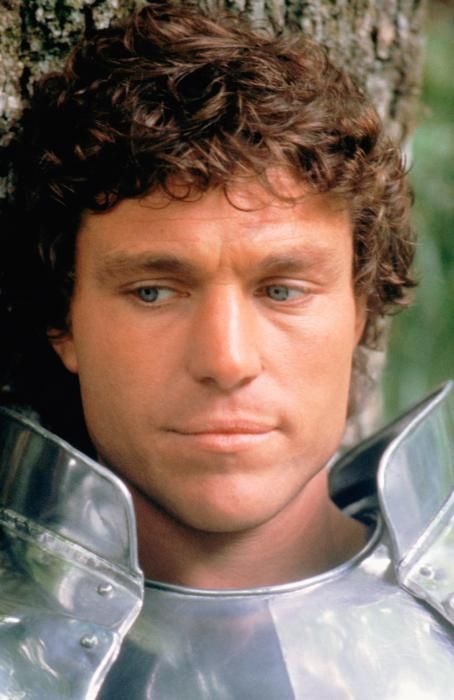



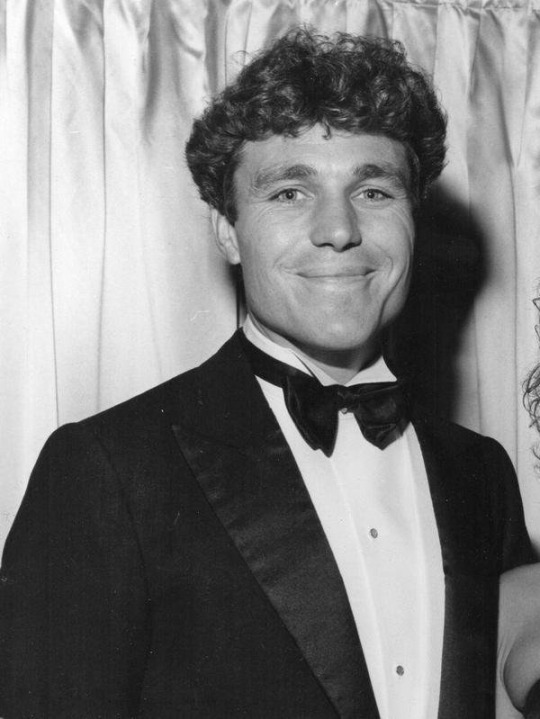

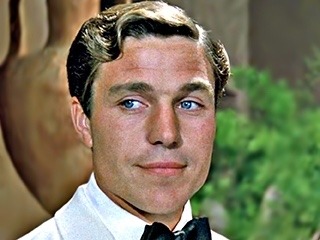
A mini-tribute to British actor Nicholas Clay. I knew him best for the role of Lancelot in “Excalibur” (1981) - my favorite telling of the Arthurian Legend. Not shy around camera (which he proved in Excalibur) Clay also starred the same year as the title character in “Lady Chatterley's Lover”. He was featured in the 1982 production of “Evil Under the Sun” - an Agatha Christie mystery where he doesn’t make it out alive.
Sadly I learned he passed away at the age of 53 in 2000.
#nicholas clay#lancelot#evil under the sun#Lady Chatterley's Lover#agatha christie#excalibur#british actor
45 notes
·
View notes
Photo


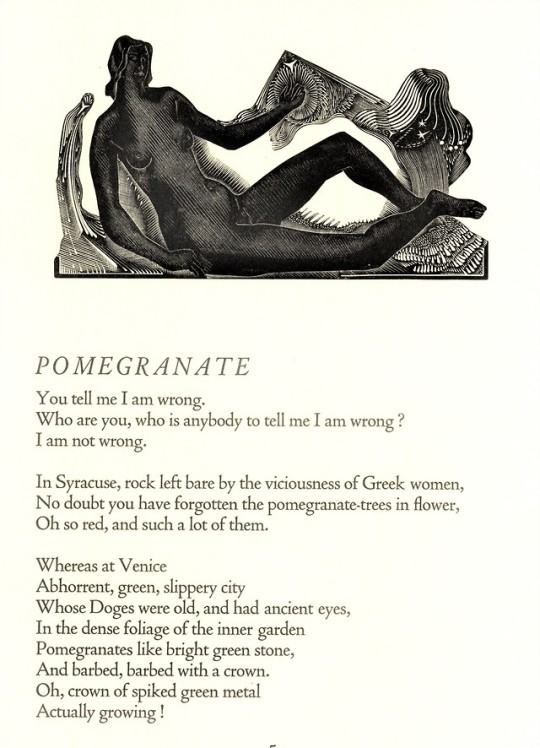
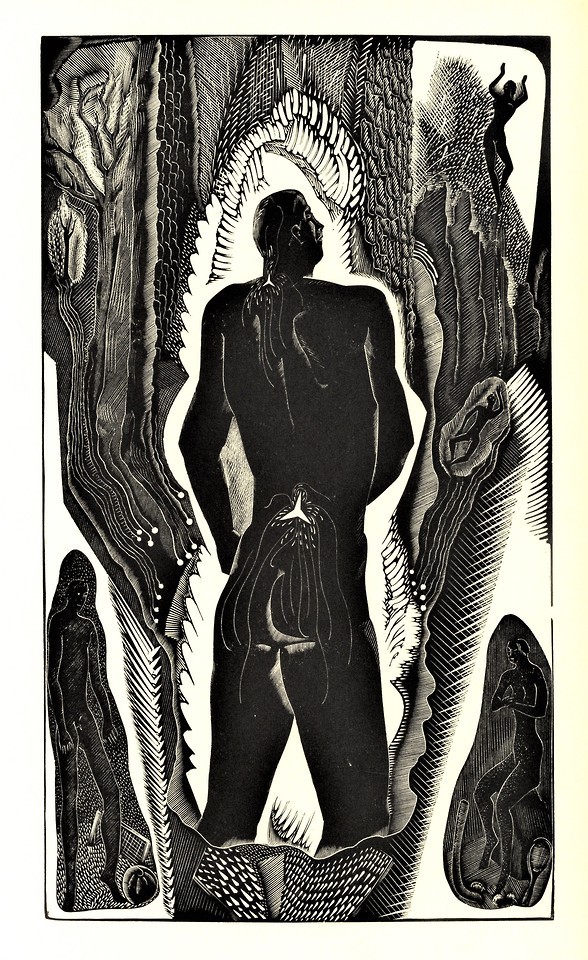

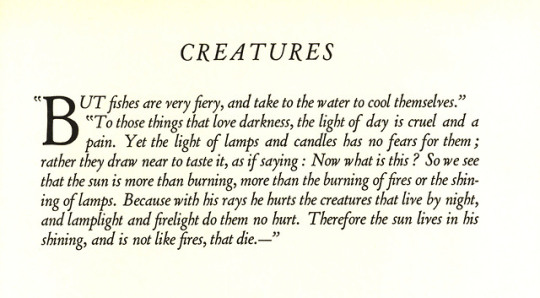
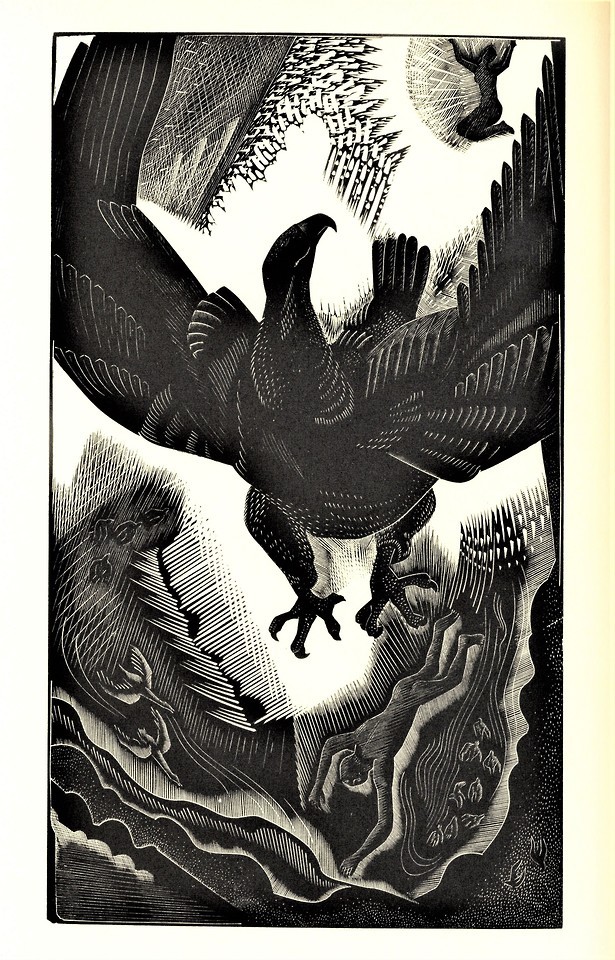
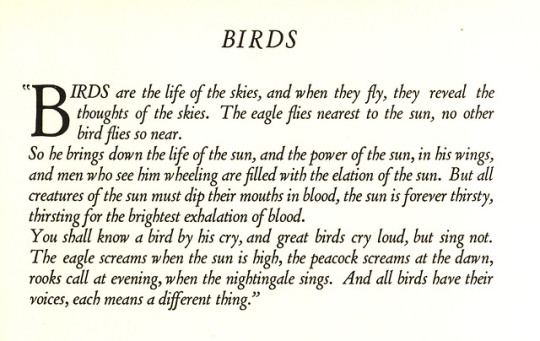


It’s Fine Press Friday!
This week we present Birds, Beasts, and Flowers poems by D. H. Lawrence with wood-engravings by Blair Hughes-Stanton and published by the Cresset Press in London in 1930. The book was printed at the Shenval Press in an edition of 500 copies on mould-made paper, and 30 copies printed on Batchelor’s handmade paper. It is quarter bound in vellum with marbled boards.
David Herbert Lawrence (1885–1930) was a playwright, poet, author, and journalist. His work explores subjects such as the negative effects of modern industrialized society, sexuality, emotional health, and the complexity of human psychology. D.H. Lawrence is best known for his controversial novel Lady Chatterley's Lover which was first published in 1928, and banned for its sexually explicit content in the United Kingdom until 1960, and in the United States until 1959. Birds, Beasts, and Flowers is a collection of poetry about the natural world, which often invoke the inner life of plants and animals.
Blair Hughes-Stanton (1902-1981) was an English wood engraver whose work was commissioned by many private presses during the first half of the twentieth century. His first book illustrations were made for T. E. Lawrence’s The Seven Pillars of Wisdom published by a private press in 1926. From 1930-1933 he co-directed the Gregynog Press with his first wife, wood-engraver and sculptor Gertrude Hermes. Gregynog was owned by sisters Margaret and Gwendoline Davies. In 1934, Blair Hughes-Stanton set up his own Gemini Press with his second wife, poet Ida Graves. Hughes-Stanton illustrated two books of poetry by D. H. Lawrence, who he considered a friend, and mentor: Birds, Beast, and Flowers and The Revelation of St. John the Divine.
This book is another generous donation from our friend, Jerry Buff.
View more Fine Press Friday posts.
–Sarah, Special Collections Graduate Intern
#Fine Press Fridays#Birds Beasts and Flowers#D. H. Lawrence#Blair Hughes-Stanton#Shenval Press#David Herbert Lawrence#Gregynog Press#Gemini Press#wood engravings#poetry#private press#Jerry Buff#Sarah Finn#sarah#Blair Hughes Stanton
48 notes
·
View notes
Photo


Lady Chatterley’s Lover (1981)
dir. by Just Jaeckin
5K notes
·
View notes